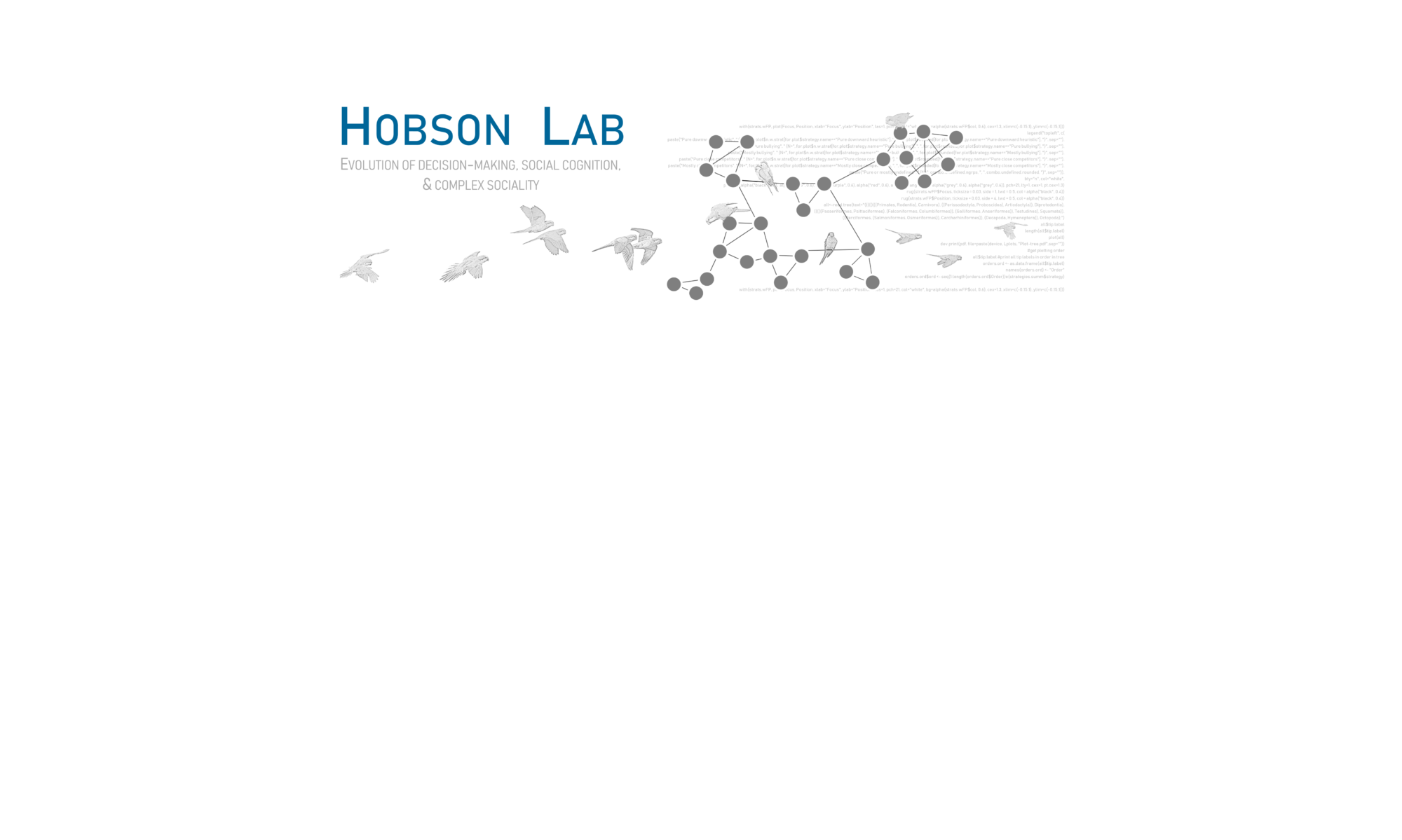Computational proficiency and data science literacy have become essential skills for biologists. Critically, these skills can make students more marketable as scientists within both academia and industry. However, learning about data science and computational analysis can be intimidating, making it crucial to find ways to make these topics engaging and approachable for students.
To provide students with an engaging structure for building data science skills, I worked with several collaborators to build an online game where students can virtually interact onscreen by moving their avatars around a landscape. This “Sociality Game” allows students to “role play” the social decisions of animals, then provides them with tutorials to build their quantitative skills to analyze the data they created. Students can individually join an existing society or groups of students can jointly create a social system as they control the movement decisions of individual animals according to a set of rules. Students then analyze the data they created from following different rule sets and compare how movement patterns and social encounters differ when the underlying rules are changed.
The interactive and flexible nature of the game’s design also allows students to form hypotheses about how movement and interaction patterns may by affected be certain factors and then test those hypotheses in role-playing scenarios. The flexibility of the game makes it adaptable to many courses and institutions while the low use cost and stable platform easily allow us to scale participation. This hands-on approach to simulating social decision-making is a promising method for teaching undergraduate students about computational modeling by scaffolding the logic needed for model thinking: in the game, students are the “agents” in a modeled system, which provides an accessible way to introduce students to the logic of agent-based modeling. The Sociality Game will be flexible, customizable, scalable, low-cost, and easily adaptable and could help increase inclusivity in classrooms by reducing barriers some students face in participating in field research. The games can be run both in person and virtually, making them a resilient teaching option.
Collaborators:
Joshua Garland (Arizona State University)
Kalem Schrock (Iowa State University)
Katie Kalafut (Chicago School, Tracks Technology)
Brent Stoffer (University of Cincinnati)
Gerry Carter (Ohio State University)
Vanessa Ferdinand (University of Melbourne)
Sanjay Prasher (University of Cincinnati)
Funding:
Funding to support construction of the pilot version of the game was provided by the Association for Biology Laboratory Education (ABLE). An REU supplement to NSF IOS-2015932 also partially supported Kalem Schrock’s work on the game in summer 2022. Funding to expand the Sociality Game is being provided by Liz’s NSF IOS CAREER grant #2239099 (2023-2028).
Sociality Game: BATGAME version
The first version of the Sociality Game focuses on vampire bat foraging behavior. This module was developed thanks to funding from the Association for Biology Laboratory Education (ABLE) and an REU supplement to NSF IOS-2015932 (which partially supported Kalem Schrock’s work on the game in summer 2022). Liz presented this module at the 2023 ABLE conference. The module will be submitted to ABLE’s journal (Advances in Biology Laboratory Education) and will be freely available soon!

